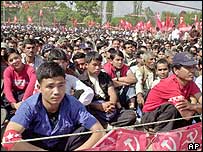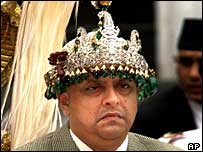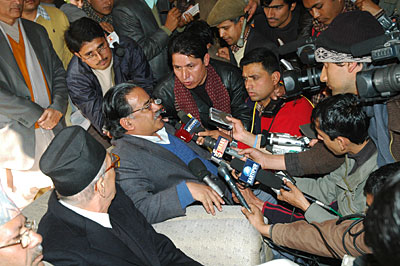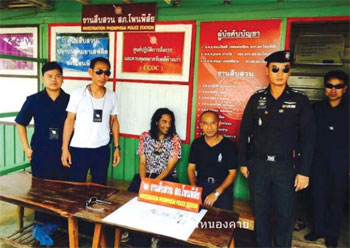Nepal Maoists insist on republic
Originally Published on news.bbc.co.uk

A key Maoist leader in Nepal says his party will not compromise on its main demand of creating a republic.
Krishna Bahadur Mahara said King Gyanendra was determined to quell the rebel insurgency by force, so his party had no option but to continue its war.
But Mr Mahara said again that the rebels were prepared to accept a democratic, multi-party republic.
But Mr Mahara said again that the rebels were prepared to accept a democratic, multi-party republic.
He was talking exclusively to the BBC on the ninth anniversary of the uprising, in which thousands have died.
Mr Mahara, a politburo member and spokesman for the Maoists, told the BBC’s Nepali service the king had lost public confidence and was ruling with just the support of the army.
Power struggle

Last month, Mr Mahara said the rebels had made a conditional offer to accept the monarchy if the king gave up control over the army.
However, two days later the Maoists said the statement was incorrect.
Nepal is witnessing a power struggle between the Maoists, the parliamentary political parties and the king.
The parliamentary parties accuse the king of trying to derail the democratic process that was restored in the country 14 years ago.
King Gyanendra assumed executive powers when he sacked the elected government in October 2002.
The king’s supporters say his intervention was necessary because Nepal was on the brink of collapse due to the failure of democratically elected governments to resolve the Maoist insurgency.
However, since the king assumed executive powers, the problems have multiplied.
Peace talks between the Maoists and the royal-appointed government broke down in August last year.
Since then more than 1,000 people have lost their lives, taking the number of those killed in the insurgency to over 9,000.
The latest Maoist statements suggest a solution to the crisis is not likely soon.
You can read more of Mishra’s column-essays on his three books, Raajnitisangai Raajkaaj, Khana Pugos Dina Pugos and Bhumadhyarekha. Please go to the BOOKS section to find out more about the books and where to purchase them.



